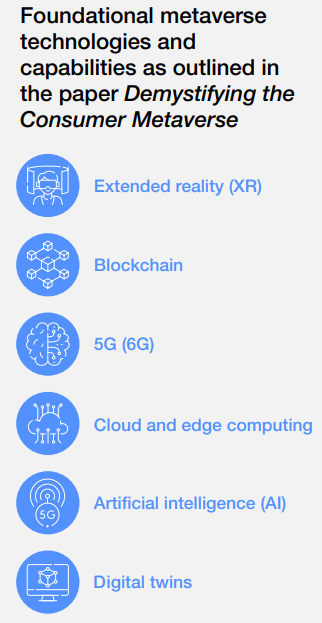The World Economic Forum (WEF) publishes a report saying that the metaverse can drive individual climate activism while making way for a transition to a circular economy.
The report, “Social Implications of the Metaverse,” says that with Virtual Reality (VR), people can “embody nature” and subsequently feel the need to change their behaviors and engage in climate activism.
“The metaverse can drive individual climate activism and behavioral impact towards a sustainability mindset and climate activism through the simulation of climate impact”
Social Implications of the Metaverse, WEF, 2023
According to the report, “Embodying nature and first-hand experience of climate change significantly increases environmentally sustainable behavior in real life, and more than doubles the likelihood to engage in voluntary education around climate change and its impacts.”
What’s more, “The metaverse can drive individual climate activism and behavioral impact towards a sustainability mindset and climate activism through the simulation of climate impact. It can provide first-hand experiences and opportunities to feel closer to and embody nature that would otherwise be too remote or dangerous to explore.”
But there’s a catch you see; if “echo chambers, disinformation, and misinformation” are not removed from the experience, then your “nature embodying” experience in the metaverse might have to come with a explainer, much like modern art.
“The effectiveness of VR simulations on behavioral change in isolated environments has proven to be significant,” the report reads, adding, “However, do these outcomes hold in a connected metaverse environment that may include echo chambers, disinformation and misinformation as well as increased sensory inputs?”
Another area where the unelected globalists see the metaverse converging with climate issues has to do with the intersection of digital twins and the “circular economy.”
“In circular economy business models, I would like products to come back to me as the original designer and manufacturer, and once you get your head around that notion, why would I actually sell you the product if you are primarily interested in the benefit of the product? Maybe I can stay the owner of the product and just sell you the benefit as a service”
Frans Van Houten, WEF, 2016
The circular economy promises to bolster sustainability by abandoning the linear value model of “take, make, waste” and adopting a circular model of “take, make; take make,” according to Accenture.
But beneath the surface, the circular economy’s Product as a Service business model ensures that you and I will own nothing while corporations retain ownership of all products they rent out to us as services.
As Royal Philips Electronics CEO Frans Van Houten explained to the WEF in 2016:
“In circular economy business models, I would like products to come back to me as the original designer and manufacturer, and once you get your head around that notion, why would I actually sell you the product if you are primarily interested in the benefit of the product?
“Maybe I can stay the owner of the product and just sell you the benefit as a service.”
“Adoption of digital twins can help to counteract environmental impact, driving both sustainability efforts and supporting the transition to a more circular economy”
Social Implications of the Metaverse, WEF, 2023

With that in mind, the WEF report on Social Implications of the Metaverse states that the “Adoption of digital twins can help to counteract environmental impact, driving both sustainability efforts and supporting the transition to a more circular economy.”
For a real world example of digital twins in action, the report says that, “Today, the use of digital twin technologies can be seen in the development of 85% of the world’s electric vehicles (EVs).”
Founded at the WEF in 2017, the Global Battery Alliance (GBA) has for some time been prepping a “battery passport” for electric vehicles, which will act as a digital twin for the physical battery.
This battery passport will also include a digital ID framework to track battery performance and greenhouse gas footprints for ESG purposes.
According to the GBA, “Each Battery Passport will be a digital twin of its physical battery enabled by the digital Battery Passport platform, which offers a global solution for securely sharing information and data.”
The WEF report on “Social Implications of the Metaverse” also has a “grounds for new identity” section dedicated to the role of digital identity and digital ID in the metaverse.
This section suggests that people will be able to benefit socially and economically based on the reputation they’ve built via their digital ID in the metaverse.












